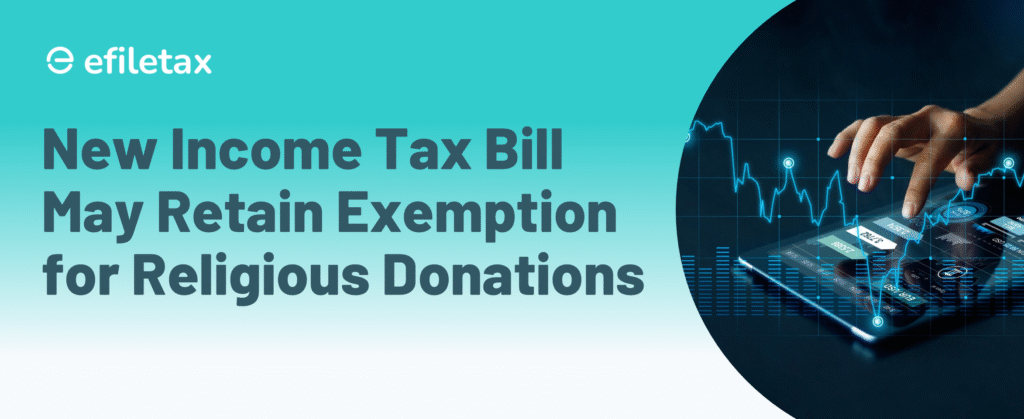
Tax Exemption for Anonymous Donations: What the Panel Recommends
A recent report by the Department-related Parliamentary Standing Committee on Finance has stirred debate across the tax and charity sector. Among its key recommendations is the retention of tax exemption on anonymous donations to religious and charitable trusts — a relief welcomed by many NGOs and religious institutions.
The panel also proposed significant compliance reforms that could benefit millions of taxpayers, including TDS refund eligibility even after ITR due date, and replacing the outdated “Assessment Year–Previous Year” concept with a simpler Tax Year system.
Let’s break it down.
Why Anonymous Donations Matter for Religious-Charitable Trusts
Anonymous donations — where the donor’s identity is not disclosed — often fund temples, mosques, churches, and other public religious institutions.
Under Section 115BBC of the Income Tax Act, 1961:
- Anonymous donations are taxable at 30%
- However, religious trusts are currently exempt from this provision
- Charitable trusts (not exclusively religious) face tax on such receipts
The parliamentary panel has now recommended continuing this exemption, citing that withdrawing it could:
- Discourage legitimate donations
- Create harassment risk for genuine non-profits
- Impose unrealistic donor-verification burdens
Expert View:
According to several tax professionals, this exemption balances religious freedom and compliance. “Imposing blanket tax on such donations would disrupt traditional donation practices in India,” says a Delhi-based CA.
Suggested Reform: Allow TDS Refunds After ITR Due Date
Currently, if you miss the ITR filing deadline under Section 139(1), you forfeit the right to claim a TDS refund – even if tax was deducted and deposited on time.
The panel has flagged this as harsh and unfair, especially for:
- Casual salaried employees
- Those unaware of TDS deductions
What’s Proposed:
- Allow refund of TDS even after the due date
- Possibly through a condonation process or simplified return
Legal Angle:
While Section 237–240 governs TDS refunds, there’s no express provision for condonation of delay beyond belated ITR deadlines. The panel suggests amending this in the interest of equity and taxpayer rights.
“Tax Year” to Replace Assessment & Previous Year
If you’ve ever struggled with whether AY 2025–26 refers to FY 2024–25, you’re not alone. The panel wants to eliminate this confusion by replacing both terms with a single “Tax Year”, aligned with the actual income-earning year.
Current Terms:
| Concept | Meaning |
|---|---|
| Previous Year | Year in which income is earned |
| Assessment Year | Year in which ITR is filed |
Proposed:
| New Concept | Meaning |
|---|---|
| Tax Year | Income-earning year + return filing year |
This is in line with global practices and will simplify tax education, compliance, and software logic.
Summary
A key parliamentary panel has backed the continuation of tax exemption for anonymous donations to religious trusts, flagged the need for post-deadline TDS refunds, and urged replacing “assessment year” with a simplified “tax year” to ease taxpayer confusion.
FAQs
Q1. Are all anonymous donations tax-exempt in India?
No. Only those received by religious trusts are exempt under Section 115BBC. Charitable trusts must pay 30% tax on such donations.
Q2. What happens if I miss the ITR deadline but TDS was deducted?
Currently, you may lose the refund. The panel recommends allowing refund claims even after the deadline.
Q3. Will “Tax Year” become official soon?
It’s still a suggestion. Implementation would need Finance Ministry and CBDT notification or legislative change.
Final Thoughts
These suggestions are not yet law but reflect a strong push for taxpayer-friendly reforms. If accepted, they can:
- Protect religious institutions from compliance shocks
- Offer relief to late filers
- Simplify the Income Tax framework
Efiletax will keep tracking these changes as they evolve.